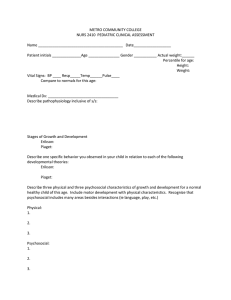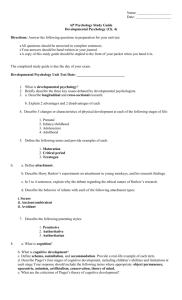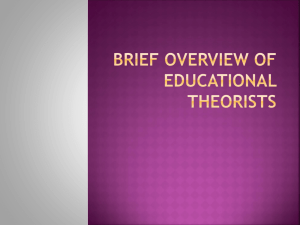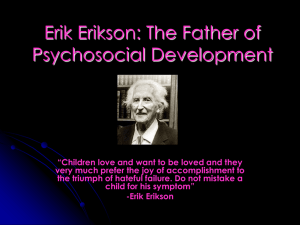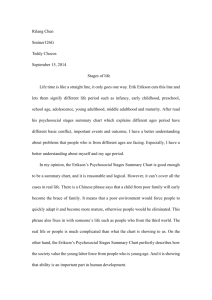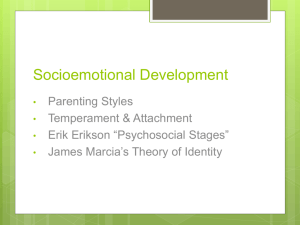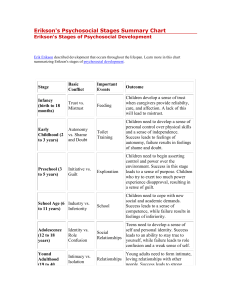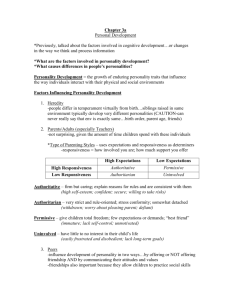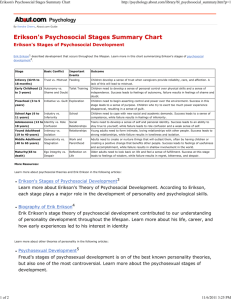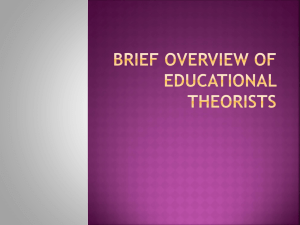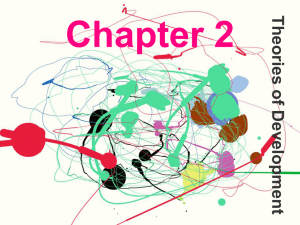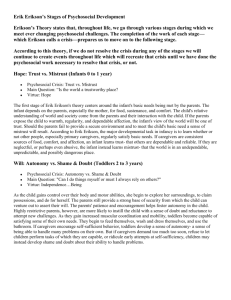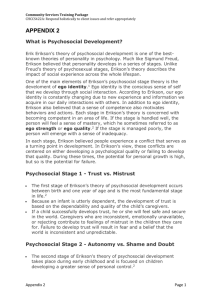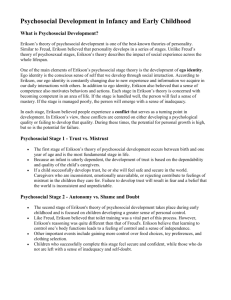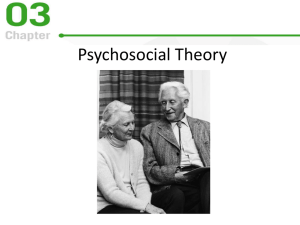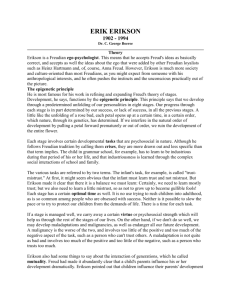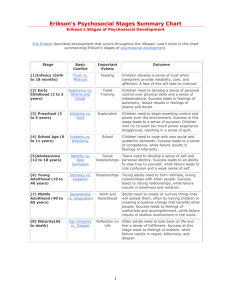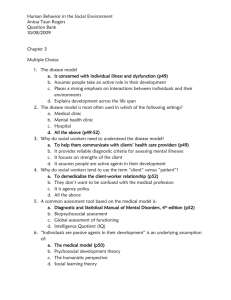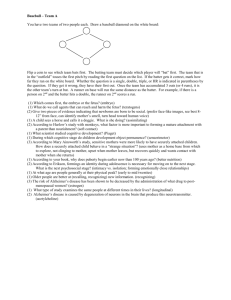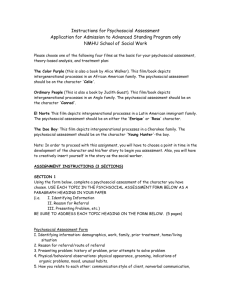Reflection Paper – Psychology 1100 Wilson Thapa Magar This
advertisement
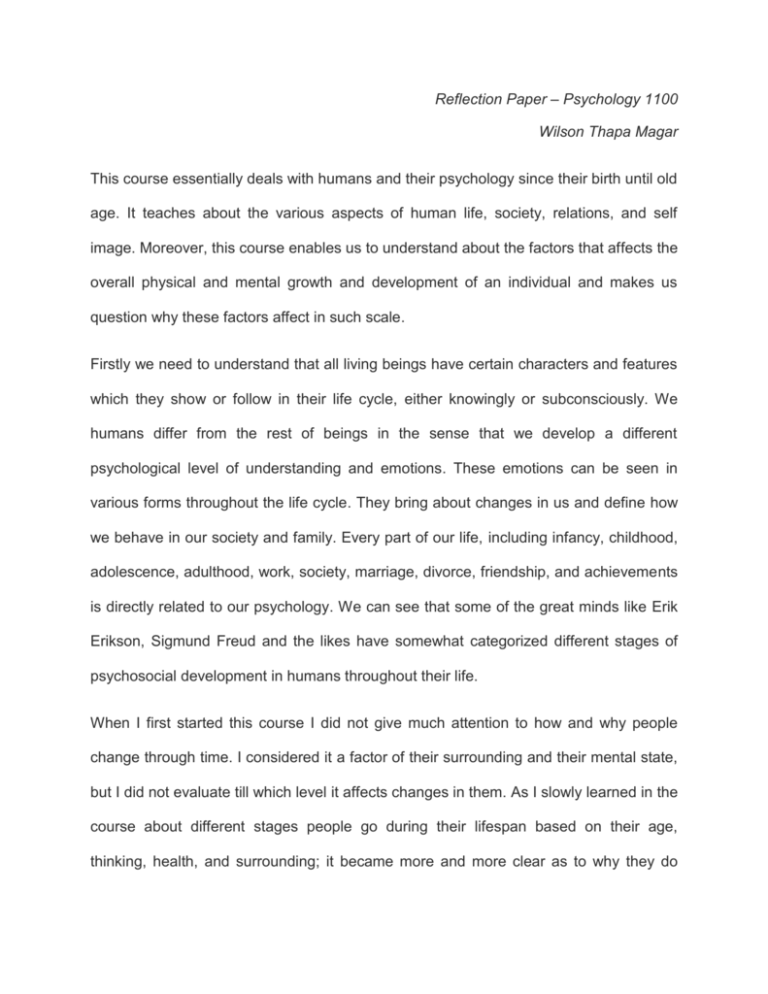
Reflection Paper – Psychology 1100 Wilson Thapa Magar This course essentially deals with humans and their psychology since their birth until old age. It teaches about the various aspects of human life, society, relations, and self image. Moreover, this course enables us to understand about the factors that affects the overall physical and mental growth and development of an individual and makes us question why these factors affect in such scale. Firstly we need to understand that all living beings have certain characters and features which they show or follow in their life cycle, either knowingly or subconsciously. We humans differ from the rest of beings in the sense that we develop a different psychological level of understanding and emotions. These emotions can be seen in various forms throughout the life cycle. They bring about changes in us and define how we behave in our society and family. Every part of our life, including infancy, childhood, adolescence, adulthood, work, society, marriage, divorce, friendship, and achievements is directly related to our psychology. We can see that some of the great minds like Erik Erikson, Sigmund Freud and the likes have somewhat categorized different stages of psychosocial development in humans throughout their life. When I first started this course I did not give much attention to how and why people change through time. I considered it a factor of their surrounding and their mental state, but I did not evaluate till which level it affects changes in them. As I slowly learned in the course about different stages people go during their lifespan based on their age, thinking, health, and surrounding; it became more and more clear as to why they do what they are doing. Assuming the fundamental question to ask for psychological studies is ‘why’. The hunt for this answer includes all of the stages of life given by most people. For example, Maslow’s hierarchy of needs shows how people tend to long for different things. They try to fulfill their physiological needs for survival firstly. After that we have safety, love, esteem and self-actualization. A person who is trying to achieve safety will mostly not look for self-actualization. Similarly, as Erikson described in his stages of psychosocial development, from childhood till death a healthy person comes across various challenges relating to love, purpose, intimacy, wisdom, fulfillment and more; that person will eventually have to face these challenges at certain stage of their life and will hopefully master the condition. This learning process through different challenges generally shapes a person. Every one of us is somewhat different that the other and have certain physical, mental and social limits. Our logical thinking and intelligence defines a lot of what we develop into in our life. Some have better logical functioning of the brain, being able to learn and judge different conditions quickly. Some are deep thinkers who might be able to have a better reflection of life and matters related to society and relations. We also have the social barrier to consider. The society has a big role in the development of a child, which eventually affects the adult to follow. During this course I had the opportunity to interact and observe different people, to analyze and compare their situation with the psychosocial stages and development of life. I now have some understanding of why children behave in a certain way, why people turn out to be the way they are, why people in relation marry or get divorced, how friendship and communal behavior is maintained, and why wisdom comes along with age. It is not only a random thing that we all tend to do, but a systematic and logical pattern that defines our entire life.
